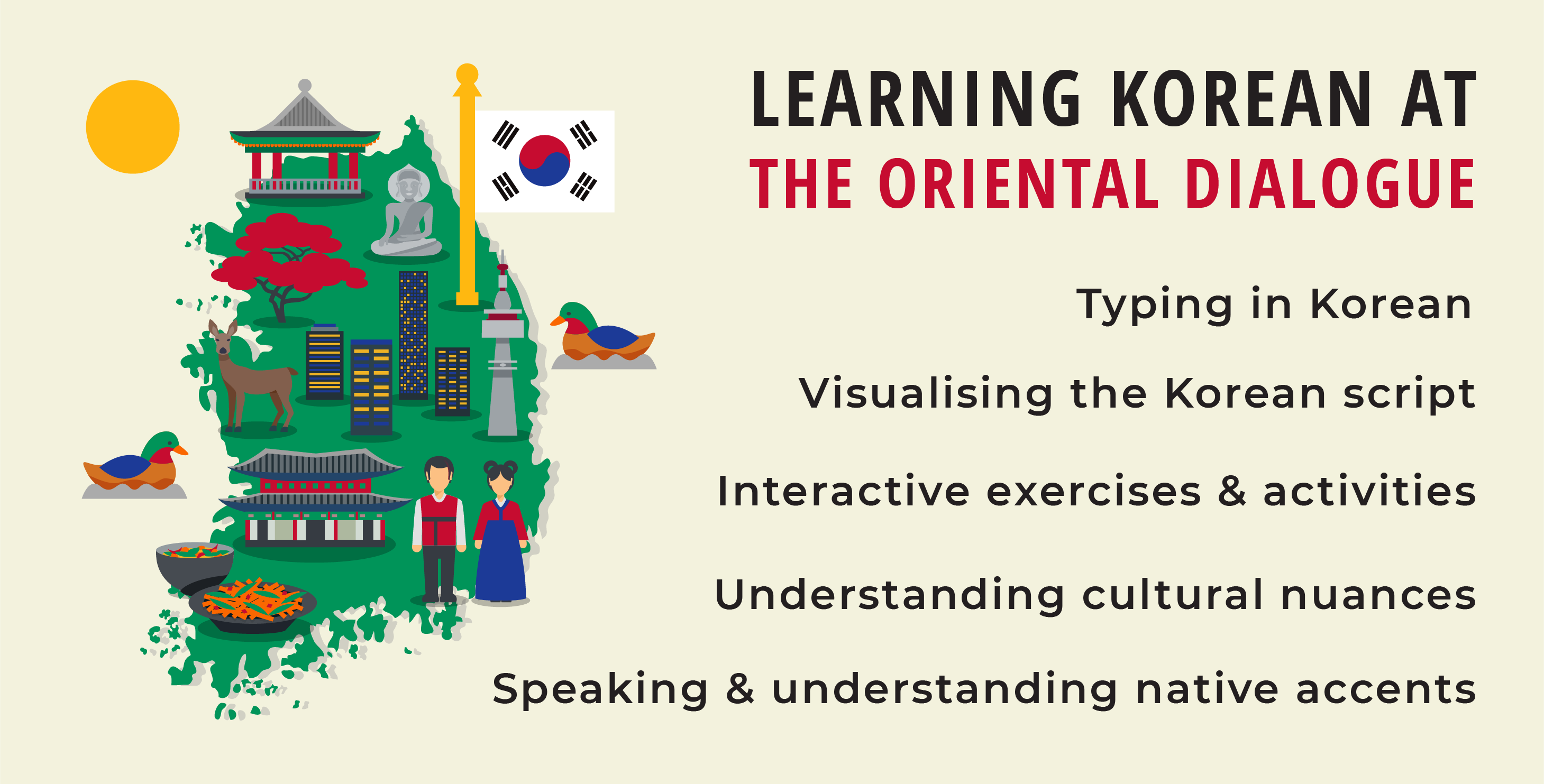Learning a new language is a challenge for all of us, especially one like Korean which does not have many similarities with English or our mother tongues. The Korean language also has an entirely new script, which adds an additional layer of difficulty to the process. That’s why, at The Oriental Dialogue, we have come up with a simplified learning curriculum which will make life easier for new learners.
-
Learning a new script with visual aids
The Korean alphabet is known as Hangul. It consists of 24 letters (14 consonants and 10 vowels). It is a writing system for the Korean language which was created by King Sejong. Infact, Hangul was created in such a specific manner that it would be easy to learn.
But learning a new script is always a daunting challenge. We make it simpler by using visual associations. Our trainers and material help students visualise each letter, and the alphabet and script soon becomes second nature. -
Interactive exercises and activities – virtually
This year has made us shift all of our classes online until further notice, taking the fun and interactive environment of a physical classroom with it. But our awesome team has come up with ways to make virtual learning equally interesting and interactive. Our in-class activities will help you remember Hangul letters and new concepts much more easily, without all the boring textbooks. -
Type with a Korean keyboard
The digitisation of our entire world means that a language has to be communicated digitally too. As Korean learners, students will eventually find a need to be able to communicate via messages or email. It can take a little while to get a hang of typing in Korean, so we start from Day 1. It has tremendous real-life value, and is integrated into our curriculum to ensure that students learn this skill simultaneously.
-
Understand cultural nuances
Korean is a language which is so far removed from our own, and so is its culture. Textbook learning is one thing, but being able to apply it in everyday situations is equally important. Cultural nuances play a significant role in interactions with native speakers and we make sure our students learn them too. You don’t want to be making a faux-pas when you visit Korea or talk to a Korean counterpart at work, do you?! -
Learn to speak
Arguably the most important skill of all, depending on your requirements of course, being able to fluently speak a language opens up a whole new bunch of doors. Whether it is for travel to Korea or working with Korean companies, being able to make small talk and handle daily interactions in Korean adds tremendous value to your skill set and shows the effort you’ve put into learning! Our courses ensure that students have ample speaking practice, along with listening to and learning to understand native speakers too.



